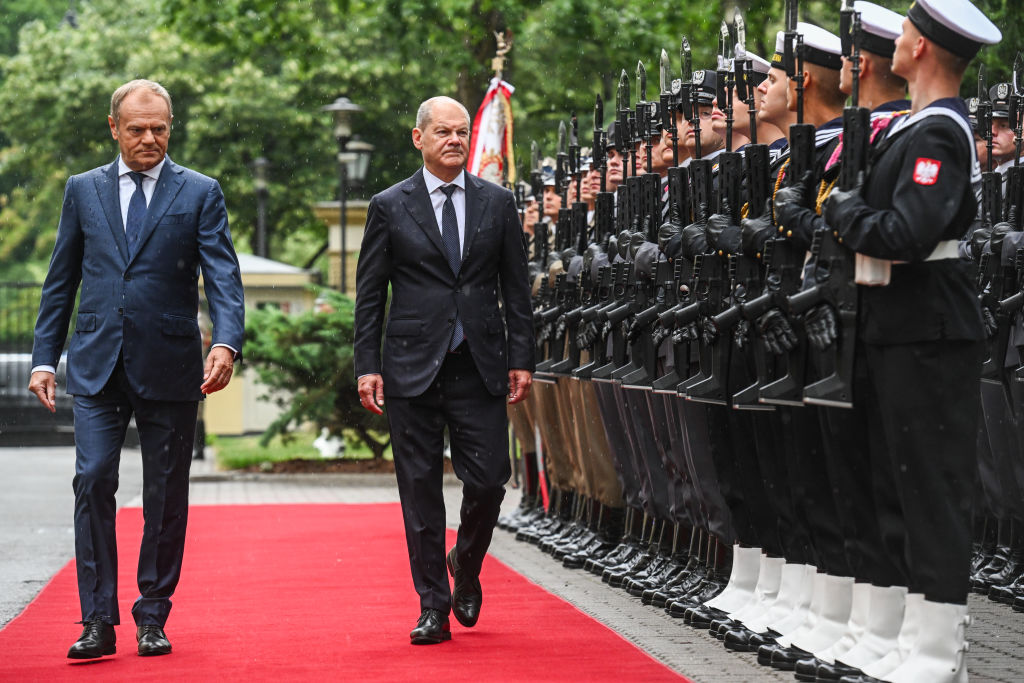Iran: Worker activist sentenced to death

(Beirut) – Iran’s Revolutionary Court has sentenced a labor activist to death for “armed rebellion against the state” on charges of membership in an opposition group, Human Rights Watch said today. The court announced Sharifeh Mohammedi’s verdict to her husband, Sirous Fathi, on July 4, 2024, the Human Rights Activists News Agency (HRANA) reported.
HRANA reported on July 4 that intelligence agents arrested Mohammadi at her home in Rasht on December 5, 2023. A source close to Mohammadi told HRANA that she was a member of the Association of Workers’ Organizations until 2013. This group has no connection with Komala, a Kurdish social democratic party that was previously involved in armed conflict in Iran and reportedly still maintains an armed wing of which she is believed to be a member.
“In addition to relentlessly cracking down on female activists, Iranian authorities have also carried out attacks and repression against women from ethnic and religious minorities,” said Nahid Naghshbandi, Iran researcher at Human Rights Watch. “If President-elect Pezeshkian wants to signal that he stands for real change, he should start by ending this ongoing repression, which includes death sentences.”
Mohammadi was born in East Azerbaijan and was a member of the Coordination Committee to Support the Establishment of Workers’ Organizations. The committee was founded in 2005 by several Kurdish activists to support and facilitate the establishment of independent workers’ organizations. Iran’s security authorities assumed, without evidence, that this committee was linked to the Komala group. Although the founders and members of this committee were arrested and detained several times, none of them were charged with “armed rebellion against the state.”
Sixteen female political prisoners from Evin Prison wrote in a letter on July 9 that they “stand with Sharifeh Mohammadi and all those facing the death penalty.” The letter states: “Sharifeh Mohammadi, a labor activist, was sentenced to death on baseless charges after seven months of detention, torture and interrogation.” Among the signatories was Nobel Prize winner Narges Mohammadi.
Since the 2022 “Woman, Life, Freedom” protests, Iranian authorities have escalated their crackdown on women activists and human rights defenders, using tougher measures and imposing harsh punishments to suppress dissent and silence opposition voices. This includes sentencing 11 women’s rights and political activists to prison on March 27.
The crackdown on ethnic and religious minorities is evident in state actions in regions such as Kurdistan, Sistan and Baluchestan. Two other Kurdish political activists, Pakhshan Azizi and Warisha Moradi, are on trial in Tehran for “armed rebellion against the state.”
The Kurdistan Human Rights Network (KHRN) reported that intelligence agents arrested Moradi, a member of the Eastern Kurdish Society of Free Women (KJAR), in Kermanshah on August 1, 2023. She is also accused of “armed rebellion against the state.”
According to KHRN, she was pressured and threatened to extract confessions. On December 26, 2023, after five months of solitary confinement, she was transferred to the women’s section of Evin Prison. She continues to be denied her right to make phone calls and meet her family.
According to KHRN, Azizi was arrested by intelligence agents on August 4, 2023, also for “armed rebellion against the state.” She was previously arrested by security forces in 2009 during a protest rally by Kurdish students at Tehran University against political executions in Kurdistan. After four months in custody, she was released on bail. Several members of her family were also arrested, but released after a few days of interrogation. According to KHRN, she was not allowed to see a lawyer and was threatened and pressured to confess.
Jina Modares Gorji, a journalist and women’s rights activist from Sanandaj, was sentenced to 21 years in prison and exile by the Revolutionary Court in Sanandaj in May 2024. She was accused of “forming illegal groups with the aim of overthrowing the state,” “collaborating with hostile groups and governments,” and “propaganda against the state.”
“The Iranian authorities have demonstrated their disregard for the rights of minorities and women through the brutal suppression of protests and the arrest and mistreatment of women activists,” said Naghshbandi. “They should release Sharifeh Mohammadi immediately.”



